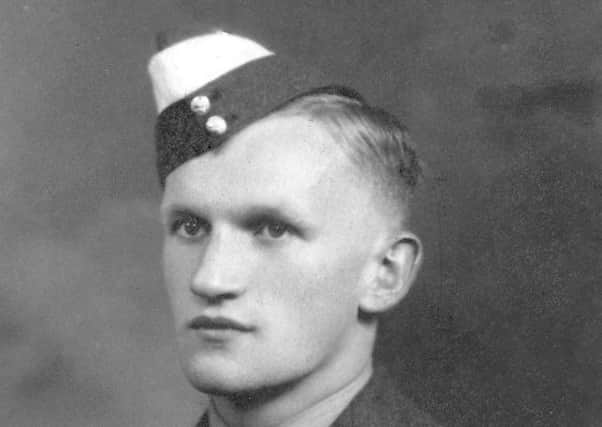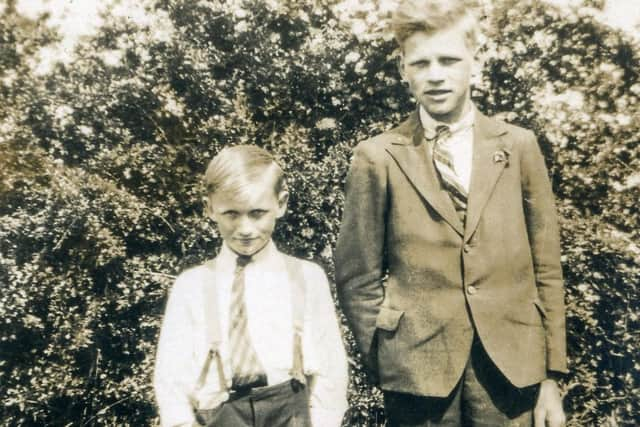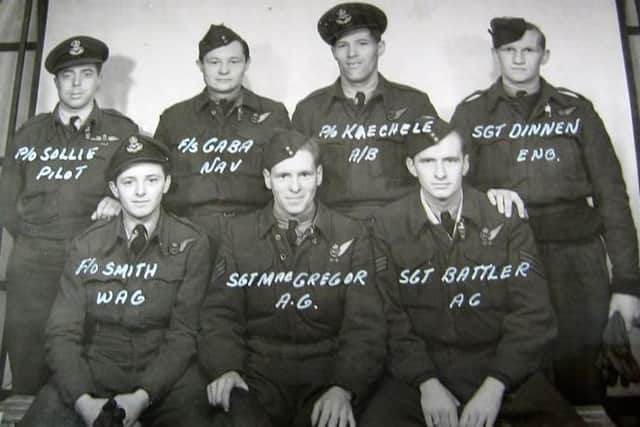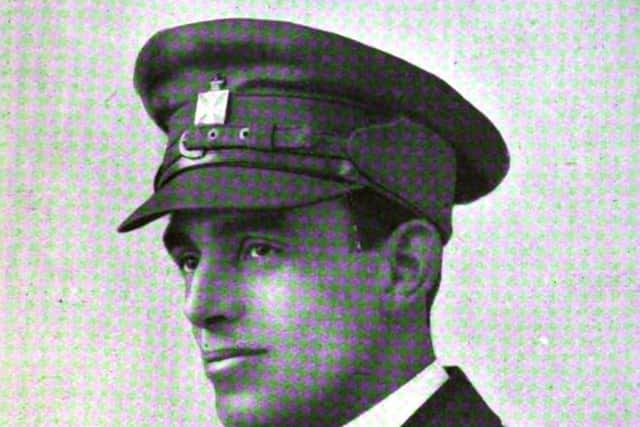It’ll be different but we will still remember them on Sunday


But there are numerous TV, radio and social media events, live and recorded, with online and streamed acts of Remembrance and the Royal British Legion wants us to pause for the two minute silence in our homes or on our doorsteps.
Every year around Remembrance Day numerous wartime accounts are shared on this page by News Letter readers, heart breaking or heart stopping - about fallen loved ones, families tragically torn asunder, soldiers missing believed dead or front-line heroes who returned.
Advertisement
Hide AdAdvertisement
Hide AdBecause of his Irish forefathers, WWI poet and chaplain G A Studdert Kennedy always maintained he was an Irishman.


Famous for offering wounded soldiers cigarettes, he was often mentioned in readers’ wartime accounts along with his four-line poem ‘A Scrap of Paper’, about the telegram sent to fallen soldiers’ families.
“Just a little scrap of paper
In a yellow envelope,
And the whole world is a ruin,


Even Hope.”
Another of Studdert Kennedy’s iconic poems was bitter-sweet, explaining why he was nicknamed Woodbine Willie by the soldiers in the trenches:
“They gave me this name like their nature,
Compacted of laughter and tears,


A sweet that was born of the bitter,
A joke that was torn from the years.”
One unimaginably bitter-sweet memory shared on this page was about a nameless Royal Navy sailor whose WWII Corvette had been sunk by a U-Boat.
Advertisement
Hide AdAdvertisement
Hide AdStruggling helplessly in the Atlantic, dozens of fellow-crewmen heard him calling across the unforgiving waves - “Taxi, taxi!”
The surviving crewman who recounted this moving story of ‘humour amidst tragedy’ never saw his comrade again.
From the home-front there were memories of an anguished Belfast man clutching his little daughter’s shoe, all that was left of his family after their home had been blitzed.
A little Polish boy was recalled who was badly beaten up by German guards when he offered food and a cigarette to a starved, shackled Ulster soldier in a train bound for a WWII POW camp in Poland.
Advertisement
Hide AdAdvertisement
Hide AdA memorable wartime story recounted here came in a letter from the WWII radio operator who intercepted vital Morse code messages during Operation Mincemeat.
Years later, while watching the film ‘The Man Who Never Was’ on TV, Belfast pensioner Ted Ross discovered that his radio interception in 1943 was pivotal to one of history’s greatest wartime subterfuges!
But the wartime account of a ‘last parting’, shared here in 2014, contained all the pain and tragedy of Woodbine Willie’s scrap of paper.
Robert Louis Dinnen, known as Louis, was the youngest of the seven children of John and Susan Dinnen from Ballinamore, County Leitrim.
Advertisement
Hide AdAdvertisement
Hide AdLouis volunteered for service in the RAF during World War II after studying at Wilson’s Hospital School in Westmeath. He became a Sergeant Flight Engineer in Bomber Command, in which, sadly, there was a high death toll.
Louis’s nephew Dr John Dinnen sent a moving account of his uncle’s short life to Roamer.
Just two weeks before Sergeant Dinnen was killed he wrote to his brother Wilton who was serving in the Royal Navy - “We are very busy here, nothing but eat, sleep and flying. The wireless operator was so tired that he slept for 21 hours on the stretch”
The letter continued to recount a short period of leave at home when Louis went to the local school’s ‘basket tea’ - “It was a real country dance or social.”
Advertisement
Hide AdAdvertisement
Hide AdLouis was a popular member of a Canadian crew in a Halifax bomber (RCAF Squadron 420, Snowy Owl) which made several raids over Germany.
On the night of 5th March 1945, just a couple of months before the war in Europe ended, the bombers set out for a raid on Chemnitz.
Unfortunately, Louis’s plane was one of several which iced up and, with a heavy load of bombs, crashed before leaving Yorkshire.
Only the upper gunner managed to bail out and survive.
After hearing of his death his distraught mother remembered “When my darling boy was kissing me goodbye, he pressed two kisses on my lips, drew back a little and kissed me again; one would think he knew it was to be his last. I did not know then that he was to start over Germany.”
Advertisement
Hide AdAdvertisement
Hide AdAged just 21, Louis was buried in the war cemetery in Harrogate and photos of his funeral were sent back to his widowed mother.
His mother wrote movingly of her distress though talked also of the ‘great blessing’ of a new granddaughter born just two weeks after her uncle’s death and called Louise, after him.
There was a reminder in Dr Dinnen’s letter that Ireland was a neutral country during WWII “and the death notice in the newspaper didn’t mention that he was in the British Forces and just cryptically stated ‘Greater love hath no man than this.’”
Dr Dinnen’s letter of 2014 observed “Nowadays the sacrifice of many Irish men who served in the Allied services fighting against the Nazis is better recognised,” and ended “It is humbling to reflect on Louis’s short life, from working hard in the bog and potato field to losing his life in the struggle to defeat Hitler.”